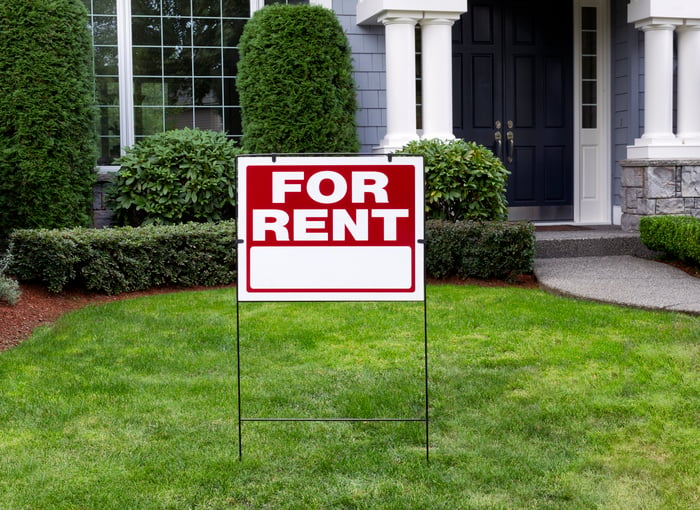Often it helps to compare a company to its peers when assessing how attractive it is as an investment. BRT Apartments (BRT 0.60%) stands above key apartment real estate investment trust (REIT) competitors when it comes to its 5.9% dividend yield. However, there are other factors that suggest the risk/reward trade-off isn't worth it.
A simple business
BRT isn't a complex REIT -- it owns apartment buildings and rents units to tenants. There are nuances to the business, such as relatively short lease lengths, but it doesn't really do anything particularly different from any other apartment landlord. That said, one of the key industry bellwethers in the market is AvalonBay (AVB 0.59%). There's a notable difference between these two REITs when it comes to dividend yield.

Image source: Getty Images.
BRT's dividend yield is, as noted, an attractive 5.9%. AvalonBay's yield is a much lower 3.7%. That's a huge 2.2 percentage point difference, giving you a chance to generate 60% more from your investment!
Dividend investors looking to add an apartment REIT to their portfolio would be wise to take a look here. But that doesn't mean that buying BRT will end up being the right call.
Okay and not OK
Looking at BRT's portfolio, it seems to be doing reasonably well. For example, in the first quarter of 2023 occupancy stood at a bit more than 94%. That compared favorably with AvalonBay's level of a little less than 96%. BRT has been able to increase rent rates, with an April improvement of 4.6%, which was roughly in line with what AvalonBay has been achieving. So the core business doesn't seem to be the issue.
The biggest difference here is probably size. BRT Apartments has a relatively tiny market cap of $323 million, compared to more than $25 billion for AvalonBay. Being bigger often makes it easier for an REIT to access financing, including both equity sales and debt. That highlights one of the big negatives on BRT's income statement: Interest costs increased by more than 100% year over year in the first quarter of 2023.
That's a pretty big change, and that added cost helped to push down the company's funds from operations (FFO) results. FFO (a critical metric of REIT performance) in the quarter came in at $0.28 per share, down from $0.35 in the prior year -- a very material decline. By comparison, AvalonBay managed to increase its FFO 13.4%. AvalonBay also raised its full-year forecast while BRT simply maintained its outlook. It isn't that holding the line on estimates is a bad thing, but when compared to AvalonBay it takes on a vastly different appearance. No wonder investors look more favorably on AvalonBay.
The dividend is another worry. BRT paid a $0.25 per share dividend, which leads to a first-quarter FFO payout ratio of nearly 90%. AvalonBay's FFO payout ratio was about 65%. Again, it is easy to see why investors would be less than sanguine with regard to BRT Apartments. If apartment REITs were to hit a sudden rough patch, BRT's dividend would likely be at risk much more quickly than AvalonBay's.
Not a slam dunk
This isn't to suggest that BRT Apartments is a bad REIT, per se. Notably, it faces different business dynamics than the much larger AvalonBay. However, the high yield does seem to be attributable to BRT Apartments' weaker financial performance. Unless you are confident that it can muddle through the headwinds it faces, like rising interest costs and the risk of recession, you might want to err on the side of caution here and pick a larger peer with a stronger financial foundation.

